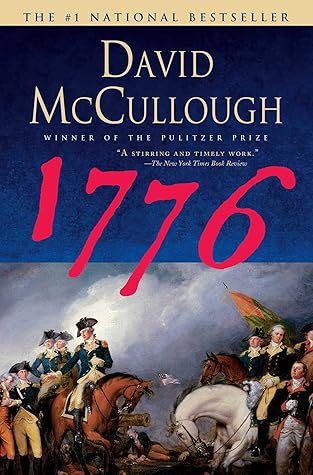More on this book
Community
Kindle Notes & Highlights
“The first of all qualities [of a general] is courage,” he read in the Memoirs Concerning the Art of War by Marshal Maurice de Saxe, one of the outstanding commanders of the era. “Without this the others are of little value, since they cannot be used. The second is intelligence, which must be strong and fertile in expedients. The third is health.”
Seeing things as they were, and not as he would wish them to be, was one of his salient strengths.
“Be easy . . . but not too familiar,” he advised his officers, “lest you subject yourself to a want of that respect, which is necessary to support a proper command.”
“Every action done in company ought to be with some sign of respect to those who are present.”)
Washington’s wealth and way of life, like his physique and horsemanship, were of great importance to large numbers of the men he led and among many in Congress. The feeling was that if he, George Washington, who had so much, was willing to risk “his all,” however daunting the odds, then who were they to equivocate.
He was by no means an experienced commander. He had never led an army in battle, never before commanded anything larger than a regiment. And never had he directed a siege.
The total British armada now at anchor in a “long, thick cluster” off Staten Island numbered nearly four hundred ships large and small, seventy-three warships, including eight ships of the line, each mounting 50 guns or more. As British officers happily reminded one another, it was the largest fleet ever seen in American waters. In fact, it was the largest expeditionary force of the eighteenth century, the largest, most powerful force ever sent forth from Britain or any nation.
In the last hours before New Year’s Day, Washington would learn that on December 27, by the vote of Congress, he had been authorized to “use every endeavor,” including bounties, “to prevail upon the troops . . . to stay with the army. . . .” Indeed, for a period of six months the Congress at Baltimore had made him a virtual dictator.
Instead of thinking myself freed from all civil obligations by this mark of their confidence, I shall constantly bear in mind that as the sword was the last resort for the preservation of our liberties, so it ought to be the first thing laid aside when those liberties are firmly established.
“‘Affliction is the good man’s shining time,’”
He was not a brilliant strategist or tactician, not a gifted orator, not an intellectual. At several crucial moments he had shown marked indecisiveness. He had made serious mistakes in judgment. But experience had been his great teacher from boyhood, and in this his greatest test, he learned steadily from experience. Above all, Washington never forgot what was at stake and he never gave up.


